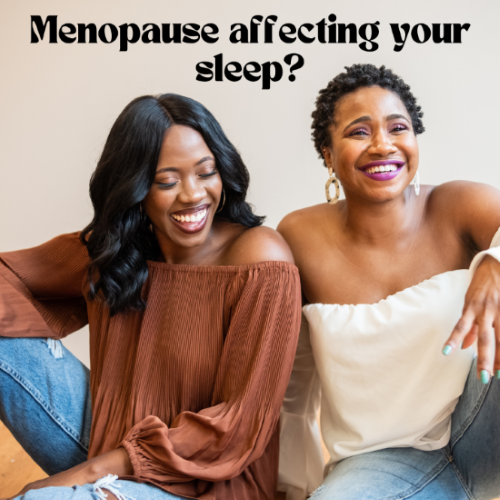Menopause is a natural process that marks the end of a woman’s reproductive period. Menopause is commonly defined as the point in time when a woman has not had a menstrual period for 12 consecutive months. It typically occurs in women between the ages of 45 and 55. However, the timing can vary widely among individuals. Does this speak to you?
During menopause, a woman’s ovaries will start to produce fewer hormones. These hormonal changes can lead to various symptoms physically and emotionally. While the symptoms can be challenging, they are a normal part of the aging process for women. Managing the symptoms of menopause can involve a combination of lifestyle adjustments, dietary changes, exercise, and, in some cases, medical interventions. Hormone replacement therapy (HRT) is one medical option that involves taking medications containing estrogen and/or progesterone, the two hormones that decrease the most, to alleviate menopausal symptoms. HRT is not suitable for everyone and should be discussed with a healthcare provider.
One of the major symptoms discussed with healthcare professionals is sleep disturbances as women transition through menopause. Here are some of the sleep disturbances associated with menopause:
- Insomnia: Difficulty falling asleep, staying asleep, or experiencing non-restorative sleep.
- Hot Flashes and Night Sweats: These can occur at any time of day but are particularly bothersome at night.
- Mood Changes: Mood swings, anxiety, and depression all of which can in turn negatively affect sleep quality.
- Sleep Apnea: Hormonal changes can increase the risk of sleep apnea, often accompanied by loud snoring and gasping.
- Restless Legs Syndrome (RLS): Irresistible urge to move the legs, often with uncomfortable sensations down the legs. RLS tends to worsen during periods of rest or inactivity, disrupting one’s sleep.
- Shifts in Sleep Pattern: Difficulty falling asleep or waking up too early.
- Pain and Discomfort: Some women experience joint pain or muscle aches making it difficult to find a comfortable sleeping position.
- Medication Effects: Hormone replacement therapy (HRT) and other medications used to manage symptoms of menopause can sometimes have an impact on sleep.
Managing sleep disturbances can become a trial-and-error strategy. Going to bed and waking up at the same time each day can help with regulating your body’s internal clock. Engaging in calming activities before bed, such as reading and/or stretching can relax the body. Keeping your bedroom dark, quiet, and at a comfortable temperature can aid in a restful night of sleep. Regular physical activity can promote better sleep for some. All of these activities can assist with overall relaxing the body to produce better sleep.
Q&A
Q: When should I seek medical help for sleep disturbances during menopause?
A: If sleep disturbances are significantly impacting your daily life and quality of life, it’s advisable to seek medical help. A healthcare provider can evaluate your symptoms, provide guidance, and recommend treatments or interventions to improve your sleep.
Q: Can diet play a role in managing sleep disturbances during menopause?
A: Yes. Certain foods, such as those high in sugar and caffeine, can exacerbate sleep problems. A balanced diet, rich in nutrients, can support overall health, which in turn can positively influence sleep.
All individuals experience menopause and sleep disturbances differently, however, if you are struggling with sleep due to menopause it’s important to address your specific sleep concerns with a healthcare professional who can provide personalized advice and recommendations. Connecting with Preferred Research Partners can also bring you awareness of a clinical trial to aid in this indication.

